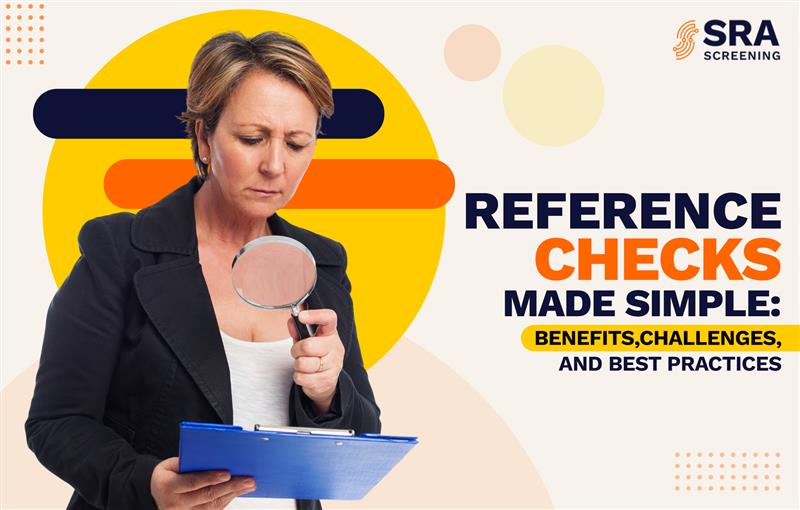
When it comes to hiring, a strong résumé and confident interview performance don’t always tell the full story. That’s why employers often turn to reference checks—an essential step in confirming whether a candidate is truly the right fit for the role.
Think of it as a behind-the-scenes conversation that helps employers confirm whether a candidate is truly as strong as they appear on paper. A reference check involves contacting individuals who have worked with or supervised the candidate in a professional or academic setting. The goal is simple: to gain insight into their skills, work ethic, and overall character from someone who has seen them in action.
For employers, reference checks reduce hiring risks and provide peace of mind. For candidates, they’re an opportunity to let past performance and reputation speak for themselves.
In this guide, we’ll cover what reference checks are, the different types, their importance, challenges, and best practices.
Reference checks are not a one-size-fits-all process. The type of reference that adds the most value can vary depending on the role, the industry, or even the stage of a candidate’s career. Generally, references fall into two categories: Professional and Personal.
Professional references are the most common in hiring. They typically include former managers, supervisors, or colleagues who worked closely with the candidate. Employers value reference checks because they provide first-hand insight into the applicant’s workplace performance. A professional reference can help answer questions such as:
While less formal than professional reference checks, personal references still play a vital role. These often come from individuals who know the candidate outside of work or school. such as friends, mentors, or community members. Personal references can provide insights into qualities like honesty, character, and reliability. They answer questions such as:
Personal references are useful when a candidate is new to the workforce, has limited job history, or is applying for positions where integrity and character are as important as technical skills.
Reference checks bring clarity and confidence to the hiring process, creating benefits for both employers and candidates. They help verify experience, highlight strengths, and build trust—ensuring the final hiring decision is the right one for everyone involved.
Let’s take a closer look at the advantages from both perspectives.
Reference checks and background screenings create transparency for both sides. Employers gain assurance, and candidates get an extra opportunity to shine, making it a crucial step in the hiring journey.
While reference checks are a powerful tool to make informed hiring decisions, they do present some challenges. Employers often face difficulties that can limit the effectiveness of this process. However, by applying best practices, employers can ensure they get meaningful and consistent insights.
Reference checks may present challenges, but when approached thoughtfully, they offer invaluable insights into a candidate’s skills, work ethic, and cultural fit. By using structured questions, comparing feedback across multiple sources, and reviewing responses with care, employers can turn potential obstacles into opportunities for stronger, more confident hiring decisions.
Reference checks are more than just another step in the hiring process. They are a crucial safeguard that helps employers make confident, informed decisions while giving candidates the chance to showcase their credibility.
While gathering honest and consistent feedback can be challenging, following best practices ensures the process remains fair, effective, and valuable for both sides. When done well, reference checks offer a clear view of how a candidate will perform and thrive within the workplace.
At SRA Screening, we recognize the importance of this step. Our comprehensive screening and verification services go beyond reference checks. We provide reliable, accurate, and timely background verifications that empower businesses to hire with confidence.
Whether it’s employment history, education, or professional references, our solutions are designed to minimize risk and give you peace of mind.
DISCLAIMER: This blog post is for informational purposes only and is not legal advice. Please consult a qualified professional before making any decisions.
The FCRA is enforced federally, but states may also implement it and have their own consumer reporting laws. You may have additional rights under state law. For more information, contact your state or local consumer protection agency or your state attorney general.
When a workplace accident occurs, employers must quickly address a range of
When a workplace accident occurs, employers must quickly address a range of
Get updates, exclusive offers, and insights straight to your inbox.
Key Resource Hub
Your Questions Answered
Editorial team insights